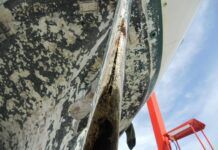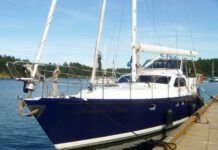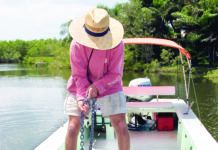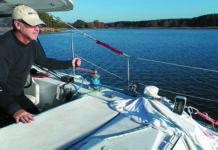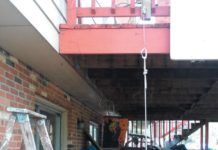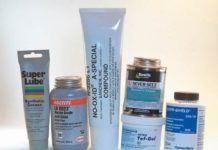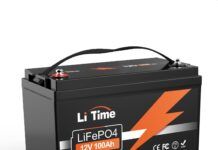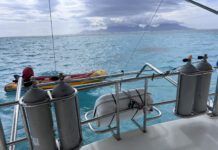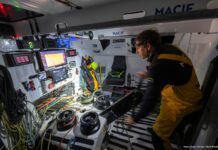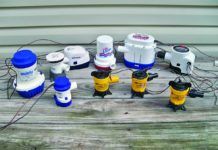
The boys father was at the helm-though you wouldnt know it at first glance. He sat to the side of his son with his hand casually nudging the spoke around seven oclock, so his son wouldnt notice. The boy stood rigid behind the wheel, both hands tightly wrapped at 10 and 12. He stared straight ahead with curious, excited eyes that rarely fixed on one object or person for very long. A bird. A channel marker. The sky.
That was the first thing people usually noticed about the boy: His eyes never rested.
Just keep it between the markers, the father said, gently pulling the wheel to port.
The father had found the 43-foot cutter languishing in a marina nine months earlier. It had been neglected for several years, but most of the harm came during a few rainy months that summer. A hatch had been left open, and rainwater poured in, filling the cabin with water. Floors warped, cabinet doors fell off their hinges, and the water-logged engine refused to start. A thin layer of mold coated the bulkheads. But the rig was in good shape, the hull was sound, and the sails still crinkled. The father saw potential.
The boy needed something to do. The father knew that. It had been that way for most of his sons life. He couldnt sit still. He spoke out of turn. He laughed when he shouldnt. He talked and talked and talked. The father liked to hear his voice (the boy was always so happy), though it made some strangers uncomfortable.
Autism is like that. It makes many of us uncomfortable, wanting to help, but not knowing how. If you’re a parent, the challenges can easily lead to frustration and despair. Not for the father. He had built and rebuilt a lot of boats. Boats that other people had given up on. For him, his boy was a lot like a boat-he just needed some attention and the right ocean.
Give the boy something to do-a broom, a hose, a paintbrush-and he fit in. He was just another boy. Normal, some people might say. The father bought the boat, and the boy had plenty to do. And just as the father expected, whatever the boy did, he did it exceptionally well. For both of them, normal was never the goal.
The engine came out first, then the fuel tank. (The bottom had rusted out.) To fit the new tank, the father cut a hole in the topsides, then closed the hole again. The bad floorboards became firewood. The settee was enlarged to make more room for more food, supplies, and tools. The boy scrubbed and sanded. He caulked and painted. He talked a lot, mostly about the boat, and where the two of them would go.
A week before Christmas, the boat went in the water. The gelcoat sparkled, the stainless shined, and the new motor hummed in a spotless engine room. They took it out for a sunset cruise.
The boy and the father steered together for a long time. The sun went down, and the Florida sky grew pink. At the end of the channel, they turned the boat around and headed back toward the marina. Just keep it between the markers, the father said. And then he let go of the wheel.
The father looked back to check the wake (yardstick straight) and to watch the last pink shades fade to purple, then grey, marking the passage of another day-a day that was anything but normal. He didnt touch the wheel again until they reached the last marker.








